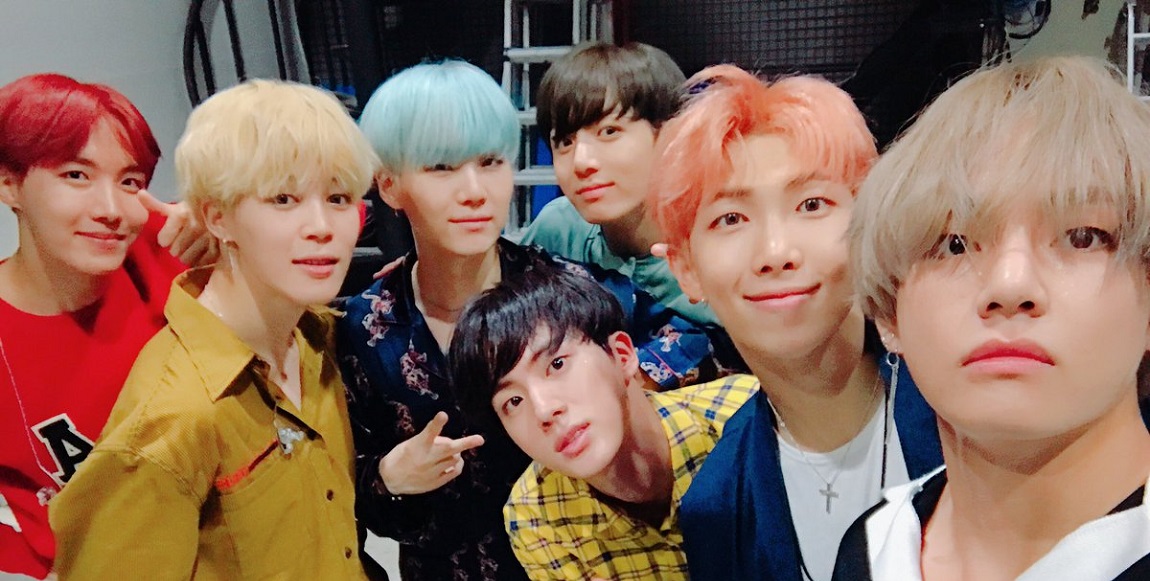In an age where constructions of masculinity are stifling and destructive, Asian musicians are breaking barriers and redefining what it means to be “manly.” The K-pop group Bangtan Sonyeondan (BTS) in particular is reimagining masculinity – and it’s about way more than how they dress. Their growing popularity means that they are creating new standards of how to be a man, write SHAAZIA EBRAHIM and FATIMA MOOSA.
Traditional constructions of manhood and masculinity are often referred to in the social sciences as toxic masculinity because of its detrimental social and psychological effects.
Toxic masculinity is built on machismo and defines a real man as someone who is tough, controlled, dominant, unemotional, “rational,” sex-obsessed and entitled to respect. Masculinity is also framed as the opposite of anything deemed feminine or queer – and being cast as queer or feminine is considered insulting to those who have internalised this view of masculinity.
Asian masculinity has long been fabricated as lesser than other cultural constructions of masculinity – to the fury of many Asian men today. Reddit communities like Asian Masculinity bely the anger of Asian men who suffer prejudice from the feminisation – and thus “emasculation” of Asian men by Western standards.
Actor Eddie Huang, whose memoir was turned into the ABC sitcom Fresh Off The Boat, wrote in the New York Times of the singularity of the Asian-American man’s identity in dominant culture: “We count good, we bow well, we are technologically proficient, we’re naturally subordinate, our male anatomy is the size of a thumb drive and we could never in a thousand millenniums be a threat to steal your girl.” The so-called emasculation of Asian-American men traces back to the 19th century when Asian male immigrants in America were classified as feminine by their white counterparts. In a journal about the feminisation of Asian-American men, Asian men are defined as “human oddities in the mind of whites.” Asian men cut shorter and slimmer figures and wore silk tunics, and they were considered novel and feminine by white men. And this tells a universal story of the feminisation of Asian men in pop culture – and in ideas about masculinity.
But Asian musicians are changing the game. The remarkable thing about them is not only do they embrace Asian masculinity, they also subvert Western notions of toxic masculinity. Asian musicians switch seamlessly between what is considered feminine and what is considered masculine in a way that is thrilling – and liberating. Their tremendous global platform provides them with a means of creating a new norm for masculinity, one that more organic and experimental.
BTS have redefined masculinity in many ways and the most obvious is how they present themselves physically. Being stylish and expressing the self through fashion is considered feminine. But the members all dress in clothing that eschews traditional hard lines of suits or baggy and shapeless jeans and sweaters favoured by hip hop artists for fashion silhouettes that are decidedly feminine. The group is not averse to pastel colours, bright prints, glitter, sequins, flowy cuts – and accessorising with earrings, rings and chokers.
4주년 함께 해줘서 ê³ ë§ˆì›Œìš” 아미!! pic.twitter.com/VOoRYVZk95
— 방탄소년단 (@BTS_twt) June 13, 2017
The group always presents themselves with a full face of makeup in a doll-like perfection – be it flawless skin, a sweeping highlight or kohl-lined eyes. BTS has skin care regimes which would put most of us to shame. The members also change up their hair often have had every hair colour from slate gray to bright red and bubblegum blue. This is revolutionary to Western society which largely deems taking care of one’s appearance as feminine.
íŒ©ì„ í• ë•ŒëŠ” 웃지 ë§ìž pic.twitter.com/DCniVQm1vH
— 방탄소년단 (@BTS_twt) May 31, 2017
BTS did regrettably go through a phase during their debut where they espoused toxic masculinity constructions. In songs like War of Hormone, Boy in Luv and Danger, they objectify the women at the centre of the song with lyrics like “Girls are like an equation, us guys just do them (yup). Wear them more, your high heels.” However, the two senior songwriters of the group, RM and Suga responded to these criticisms, saying they now consult feminist lecturers for their lyrics. Growth, I tell you.
BTS’s aesthetic is not the only reason why they have managed to transform ideas about masculinity. They have no qualms about adhering to toxic masculinity constructions about men not being allowed to cry, share their feelings and show emotions. They cry, they share their feelings all without making it seem like a big deal. There has not been a single award show where the group has won an award where they have not cried, tears running down their faces clearly showing how much it means to them.
There are countless videos on YouTube and V-Live (a streaming app from Korea) where the group sit together and talk about their hopes, dreams and anxieties. In one of the series the group did called Bon Voyage where they went on holiday to Hawaii, they wrote letters to each other about how much the other member meant to them, freely sharing their emotions.
Another side to BTS is that they talk about mental health issues. Traditional Korean society is built on Confucian and Buddhists values about diligence and stoicism, according to a Berkeley research paper. While this does not directly affect conversations around mental health, the paper says it has created a cultural stigma around the issue. The BTS members especially Suga, often talk about their struggles with mental health issues.
Suga has released an entire mixtape released under the name Agust D, where he documents his struggles with depression, social phobia and OCD. The group also have written several songs where they talk about societal pressures from parents, teachers and others to be the best. Not just for subverting masculinity but BTS manages to redefine the way the youth are expected to act in society.
As a Daily Dot article notes, “K-pop is not a healing balm for all the things wrong with the masculinity construct. These idols celebrate who they are with people who love them and gender roles are forgotten. We’re all simply there together, exuberantly learning who we are.” And it is important for everyone to be able to express their authentic selves in a way that doesn’t tie them down to arbitrary gender roles.
Men should be able to be beautiful, desirable and stylish if they want to be. Men should be allowed to express their authenticity whether that means wearing sequins and highlighter or a baggy pants and a beard. Men should be allowed to cry, and show their feelings and speak about issues of mental health. People should be allowed to embrace who they are beyond the confines of arbitrary gender roles.
And perhaps that is what the growing influence of Asian musicians globally has orchestrated: Asian men can now embrace their identities in all its complexities and allow themselves to be their own authentic selves without feeling emasculated.









